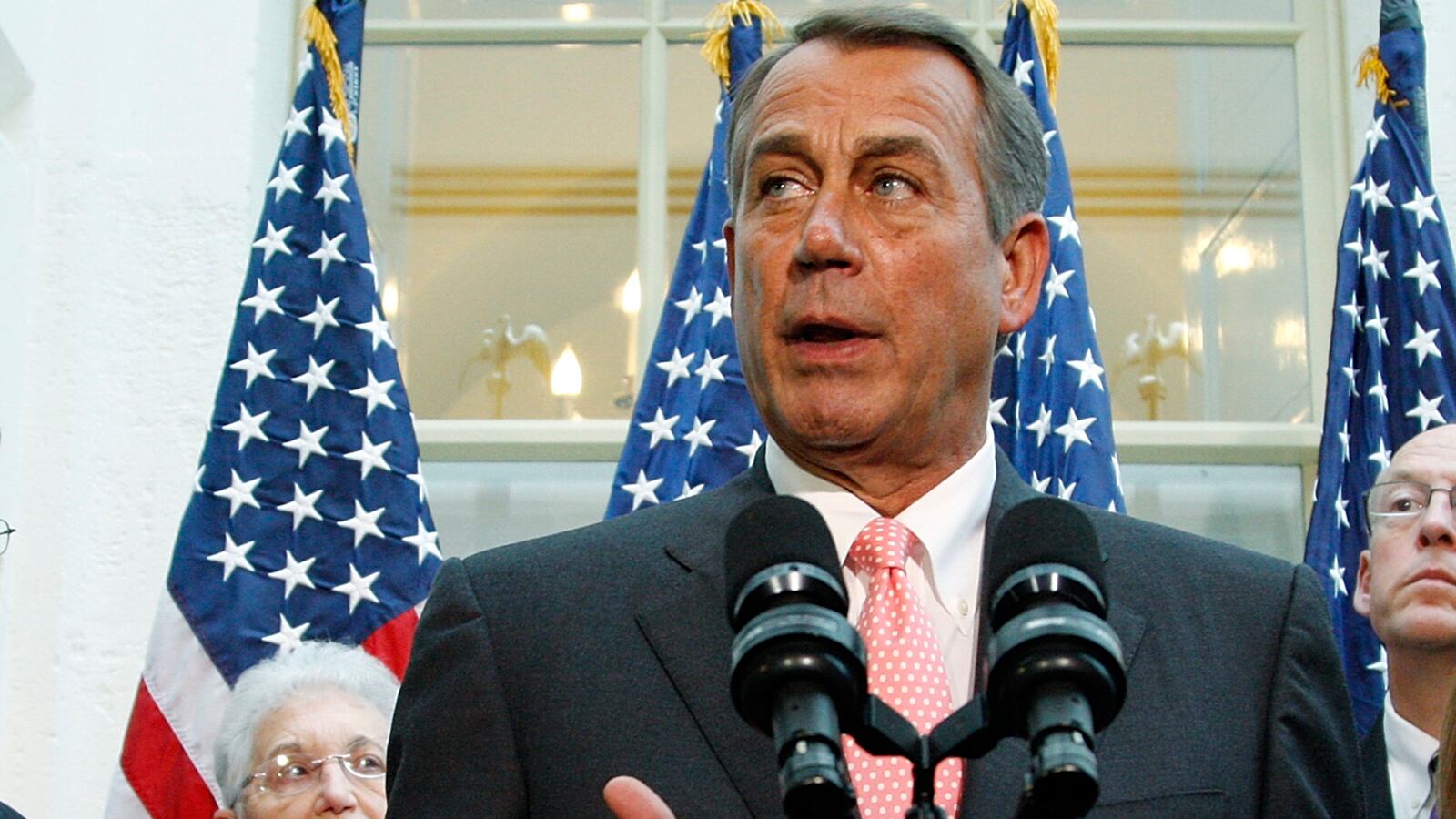The nearly half-decade movement to repeal and replace the medical device tax reached a crescendo on Tuesday.
Many House Republicans streaming out of their caucus on Tuesday expressed a guarded optimism about the newest proposal from Speaker John Boehner to avoid a default and to end the government shutdown. Their problem is that many is not enough for the proposal to pass.

Boehner's proposal would reopen the government through mid-January and keep the government from hitting the debt ceiling until February 7. It would also include longer-term negotiations on the budget, limiting the ability of the Treasury to take “extraordinary measures” to avoid a default; a two-year delay in the medical devices tax that is part of Obamacare; and would deny health-care subsidies to government officials as a modified version of the Vitter Amendment.
Democrats have already indicated that they refuse to support Boehner’s proposal and the Speaker almost certainly does not have the necessary 217 Republicans to pass it on his own. (The House normally requires an absolute majority of 218 but, because of vacancies, that number is currently 217.) Rep Tom Cole, a Boehner confidante, told reporters “I know we have a majority (of the GOP conference) but whether we have 218 I don’t know.” The Oklahoma congressman said he didn’t think that any Democrats would cross the aisle to support the bill until the vote count hit 218.
In a press conference, Boehner reiterated talking points about “fairness” but refused to answer questions about whether and when the House would vote on a plan to avoid hitting the debt ceiling. Instead, he said that he “would continue to talk to our members on both sides of the aisle.”
The original goal of the GOP was to use the shutdown as leverage to force the repeal, if not the delay, of Obamacare, but that has vanished as a goal as the shutdown has dragged on and Democrats have dug in their heels. The strategy of shutting down the government to force President Obama to repeal his adminstration's signature achievement was first endorsed by Sen. Ted Cruz over the summer and took hold among the GOP grassroots. It has since become the party's strategy despite the initial hesitation of party leaders to follow through.
Even Rep. Dennis Ross (R-FL), a Tea Party congressman first elected in 2010, admitted now that the fight over the Affordable Care Act was impossible to win. “About 70 percent [of the budget for Obama care] was already mandatory spending,” said Ross. “So you’re working with 30 percent and you have a lot of discretionary spending within the administration itself. And, as you saw over the past 15 days, Obamacare has been fully implemented despite a government shutdown.”
At this point, the outlines of a compromise are relatively clear based on the deal reached by Senate leaders Harry Reid and Mitch McConnell. There are some wrinkles. As Rep. Jack Kingston (R-GA) told reporters, it’s unlikely senators would be happy with a straight repeal or delay of the medical device tax and instead would insist on some sort of offset so that the repeal is revenue neutral. Then again, if Boehner can’t put together 218 votes in the House—something he’s still trying to do almost entirely from Republicans—it doesn’t matter what the Senate agrees to do.






